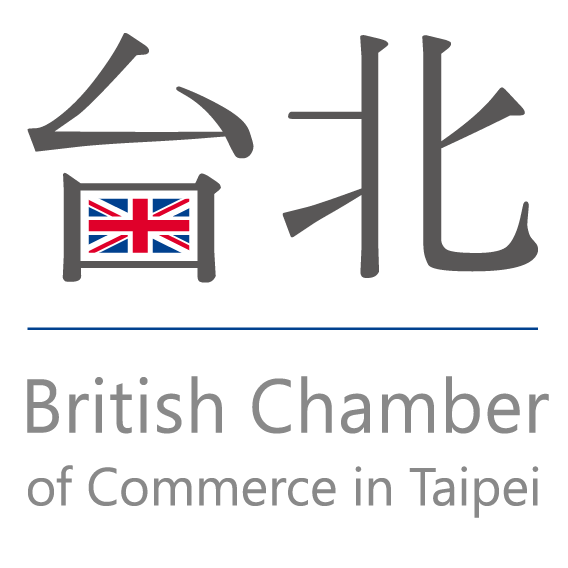Even unlisted Taiwan companies adopt ESG thinking

As mentioned in a previous article ('One solution fits all’ package for ESG doesn’t exist, The basics of 'environmental' in Taiwan's ESG, Busting the myths of 'social' in ESG, Member Insight | ESG and the need for data, ESG and Taiwan’s insurance market, Should ESG be the savior of the planet?), the Taiwan Stock Exchange (TWSE) has introduced a new ESG reporting mandate for listed companies on both the TWSE and the Taipei Exchange (TPEx). This means companies are required to publicly disclose relevant information about their ESG practices and development status on an annual basis.
The disclosure mandate is expected to strengthen investor confidence and attract additional domestic and foreign investment, in combination with the sustainability development road map launched by the Financial Supervisory Commission in March 2022 to curb greenhouse-gas emissions.
These disclosure requirements in Taiwan do not require an annual ESG “thesis” but it is becoming clear that even non-listed Taiwanese companies are feeling the need to adhere to the disclosure mandate. But why do that when it is not an obligation?
At least one argument I’ve seen is that in our globalized world the supply chains for listed and non-listed companies are the same. As a result, suppliers to these listed and non-listed companies are feeling the ESG “pinch” and putting pressure on non-listed companies to demonstrate their commitment to ESG as well. That is hard to gauge but it sounds reasonable.
But there must be other pressures involved. Ultimately, perhaps, it’s just good PR to present yourself, albeit non-listed, as a successful and forward-thinking company.
But PR alone just doesn’t seem to be the answer for me. I’ve read several sources that suggest that even non-listed companies risk being excluded from funding opportunities if they do not make ESG reporting a part of their long-term strategy. The view is that public shareholders, who are increasingly focused on ESG factors, are putting the same focus on non-listed companies.
'ESG contract'
Some commentators are going as far as to suggest that regulations could change to the extent of placing ESG reporting and compliance obligations on non-listed companies. But to be frank, I’ve not seen any sign of that from the Taiwanese regulators or government and the impact, in Taiwan alone, would be enormous.
Other commentators see that even non-listed companies now have an “ESG contract” (for want of a better phrase), with their customers, employees, and the community. However, I would add that it takes a very forward-thinking, non-listed company to assume those obligations when not mandated to do so.
One of the advantages of a private company structure is greater autonomy over governance. Theoretically, the burden of bureaucracy is less on private companies compared to their publicly listed peers, which allows them to be nimbler.
Also, private companies need to cater to the demands of public shareholders, which today are increasingly focused on environmental, social and governance (ESG) factors. But then why should owners of private companies care about ESG in the absence of such external pressures?
Even if non-listed companies aren’t directly subject to ESG policies, they may have listed company customers who will need to report ESG related information. So, it is likely that non-listed companies, with listed company customers could see themselves receiving ESG related surveys, requests for compliance documentation, scorecard metrics of their own suppliers and other related ESG benchmarking data. Non-listed companies will need to take time and use resources to maintain their relationships with listed companies.
It's arguable therefore that if, as a non-listed company you are already having to produce data for your listed companies you might as well just “bite the bullet” and create ESG related data on an ongoing basis. It may even put you ahead of your rivals for future activities.
What your customers want
But the above paragraph assumes customers as listed companies. If we take a further step and simply assume customers as normal retail customers, it is possible that the average customer is looking for some form of social and environmental responsibility from non-listed companies.
Knowing that your fruit and vegetables are organic or that your coffee is grown sustainably. The average consumer is certainly becoming savvier on these issues. They too see advertisements and the media mentioning ESG and start to take an interest.
I’m certain that in many cases parents are receiving some sort of “care for the world” message from their children as part of the education system. Perhaps that doesn’t influence the father too much even if he has one eye on an electric car, but with a concerned mother, once the seed is planted it is likely to grow.
Even non-listed companies may require access to capital, and it is a fact that the amount of lending and capital that links to ESG continues to grow. Call it “green” lending, if you wish, but as a non-listed company pitching for a loan to a Taiwanese bank, there will be a greater appetite by the bank to lend — and it may even lend at a more beneficial rate.
The benefits go both ways. The banks show their commitment to ESG and again, agile, forward-thinking, non-listed companies may be able to get ahead of their competitors in the fund-raising space.
Let’s exclude banks and financial institutions, for the sake of the argument, and acknowledge that alternative sources of funding such as large private equity groups are increasingly vocal about tying certain ESG metrics when they decide to allocate capital. One could be cynical and suggest that it is all just window dressing for the sake of some audience, but window dressing or not, it is happening, and the Taiwanese populace is starting to take notice.
Access to human capital
Non-Listed, but are you sure regulations don’t affect you? I think the answer in Taiwan is, not just yet, but with Taiwan’s commitment to the 2050 Net-Zero Pathway, there is a raft of legislation and regulations that will need to be introduced or amended for Taiwan to achieve its goals.
As a former lawyer, I would not be prepared to place a “bet” on at least some of that new or amended legislation ultimately impacting non-listed companies — whether by actual intent or otherwise.
Also, never underestimate your employees. Taiwan currently finds itself in a period of labor shortage and so it is best for companies, listed and non-listed, to be seen in the best possible light.
People want to work for companies that show a commitment to ESG efforts. People want to see diversity, equity, and inclusion. They want to see community engagement, and environmental preservation.
A strong ESG strategy differentiates companies by both attracting and retaining employees. A challenge to any company is to simply ask your employees what matters to them.
Certainly, money on the table is important, but if you create a fulsome questionnaire, I think you will get some surprising feedback about concerns for the future. That will include the very basics of ESG. Even simple initiatives like employee wellness, and continuing education support can make a huge difference to recruiting and staff retention.
Supermarket surprise
As a non-listed company, there are challenges to adopting and managing a properly managed ESG program. Again, no one-size-fits-all model, but putting in the effort now can help you stay ahead of the competition as ESG continues to grow and evolve.
I was at the cash register of my local supermarket the other day when out of the corner of my eye I spied a leaflet with the initials ESG in large-sized font. Upon closer examination the leaflet was indeed ESG related, and it was an advertisement for a local company of their ecologically “friendly” bags and accessories.
It was claimed they were made from recycled plastic bottles and had a “whale symbol” declaring in English, “Save our oceans." I had a look at the company website and found the company is clearly aiming at the ESG friendly consumer.
ESG has reached our supermarkets. Now, if we can just get those same supermarkets to reduce the amount of plastic used for wrapping or containers (why are some egg distributors still encasing their eggs in plastic and not recycled cardboard?) then the benefits for Taiwan would be even greater.
What do you think? Is the ESG wave still forming? I think so, and I think we have a long ride ahead of us.
Our member, Paul Shelton has a 30-year history in banking, working as head of Legal & Compliance and MLRO for the Asia Pacific branches of major international financial institutions in Japan, Singapore, Australia, and Hong Kong. He is also experienced in working with financial regulators across the Asia Pacific and provides consultancy services to Taiwanese financial and non-financial industry associations in all aspects of Compliance, AML/Sanctions, and Governance. He resides in Taipei.
